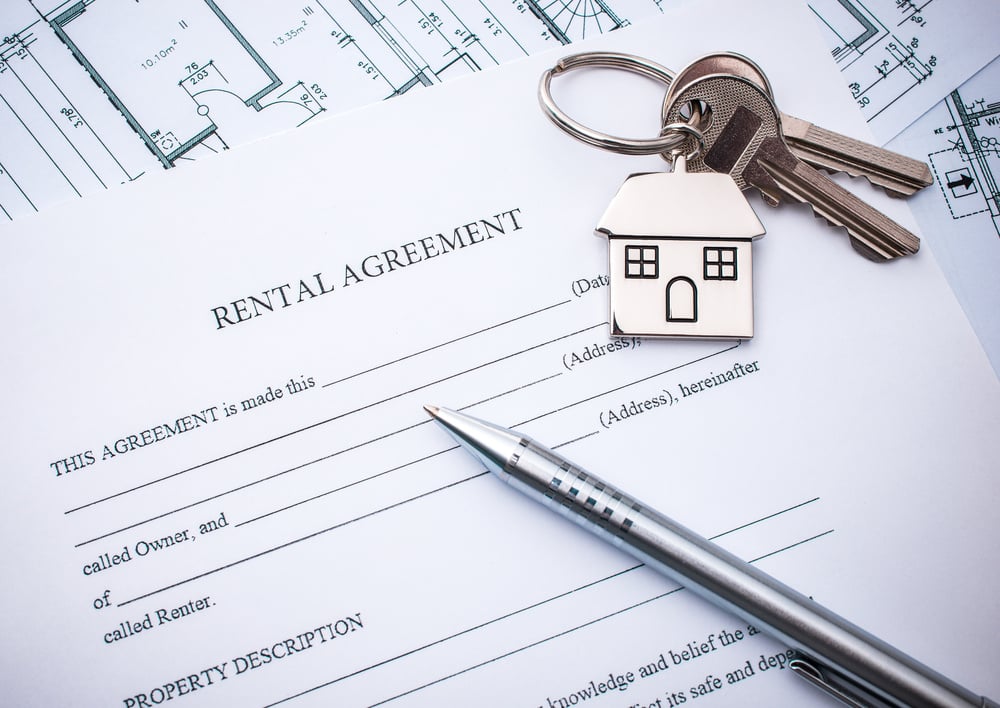
Whether you are just dipping a toe into the world of rental property ownership or are a seasoned property owner, the one thing that can protect your interests is a solid lease/rental agreement. When drawn-up correctly, both you and your residents should be protected.
Because this is a binding contract, you want to ensure that the agreement for your investment property will support you in court should the need arise. Below are some of the most vital terms of an ironclad lease or rental agreement.
Who Will Occupy the Unit
All adult residents of the property must sign off on a joint lease. This matters, because all residents are responsible for the rent being paid on time and in full. Should one resident skip out on the rent, the others are still legally obliged to pay the full amount.
Copy each adult resident’s driver’s license or state, military, or government photo identification card. If minor children will be residing at the property, their parent(s) must also list them on the lease/rental agreement.
This also applies in situations where a parent shares custody of their children with their former spouse or partner, but the kids will spend part of the time on the premises.
What the Limitations of Guest Visits Shall Be
Set a pre-determined number of consecutive days guests may stay during a specific period. This prevents residents of your rental property from moving in unapproved roommates or partners who have not passed and/or might not be able to pass background checks.
Prohibit Subletting
Your contract for your rental property should prohibit sub-letting by your residents. Without a proper vetting process in place for residents, subletting leaves you vulnerable to legal liabilities.
Description of Property for Lease or Rent
In addition to the physical address of the property and the occupied unit(s), each rental or lease agreement must state all areas to which the residents will have access, e.g., parking lots and spaces, common areas, storage units, etc.
Lease and Rental Property Terms
Whether you decide to rent your unit(s) month-to-month or to have the residents sign leases, all the terms must be detailed. Most rental property owners prefer the protection they get from having a long-term lease in place. Leases are commonly drawn up for 12 months, although some property owners agree to six-month leases for residents. Make sure that the lease includes these specific dates and times:
- Start of occupancy
- Length of term
- End of occupancy
You should also include a clause about the consequences of breaking the lease, e.g., residents are responsible for court costs and attorneys’ fees to recover uncollected rental fees and associated charges.
Leasing/Rental Fees, Security Deposits, and Late Fees
Your rental agreement or lease should be crystal clear about all costs associated with residency. In additional to the monthly charges, make sure to list all the following:
- Security deposits — This should be enough to cover normal wear and tear as well as other typical damages.
- Late fees — Even the best residents might occasionally be late with their monthly rent, so be clear about the fees you charge for late payments.
- Pet fees — Should you decide to accept residents with pets, have a pet policy that includes the amount of the deposit, as well as any breed or size restrictions.
The Property Owner's Right to Entry
Be very clear about the circumstances under which either you or the person you designate in your stead, e.g., maintenance personnel, may enter the residents' units. You should be able to access the unit for repair purposes and pest control with a reasonable notice (typically at least 24 hours) and immediately in emergencies like a burst pipe or gas leak.
A Property Management Company Could Be Your Answer
If the thought of drafting comprehensive lease and rental agreements and handling the day-to-day property management duties seem overwhelming to you as an investment property owner, you are not alone. That's why so many rental property owners turn to a reputable property management company to oversee the nuts and bolts of ownership.
Not everyone is cut out to micromanage the fine details of rental properties. This is especially true if you do not live on the site of your rental and lease properties. Often, it's a better business decision to contract with a seasoned professional whom you can trust to run the day-to-day operations. Ideally, a property management company should be prepared to:
- Screen all potential residents who apply
- Accept rental payments and/or establish an online payment site for the residents' convenience
- Investigate complaints and enforce property rules
- Swiftly repair and replace non-working appliances and make other repairs
- Market the property and its amenities to the target demographic
A well-run property management company will allow you to reap the rewards of your rental or investment property.










